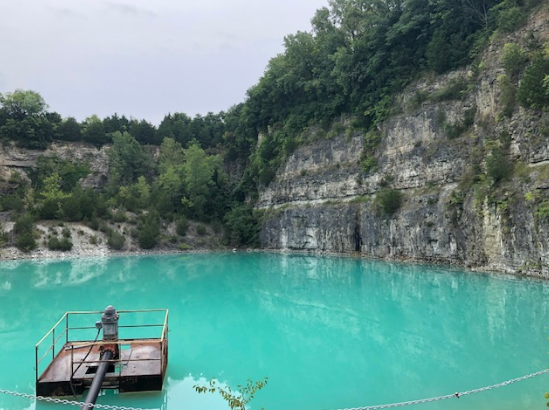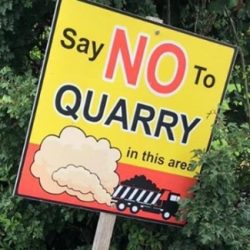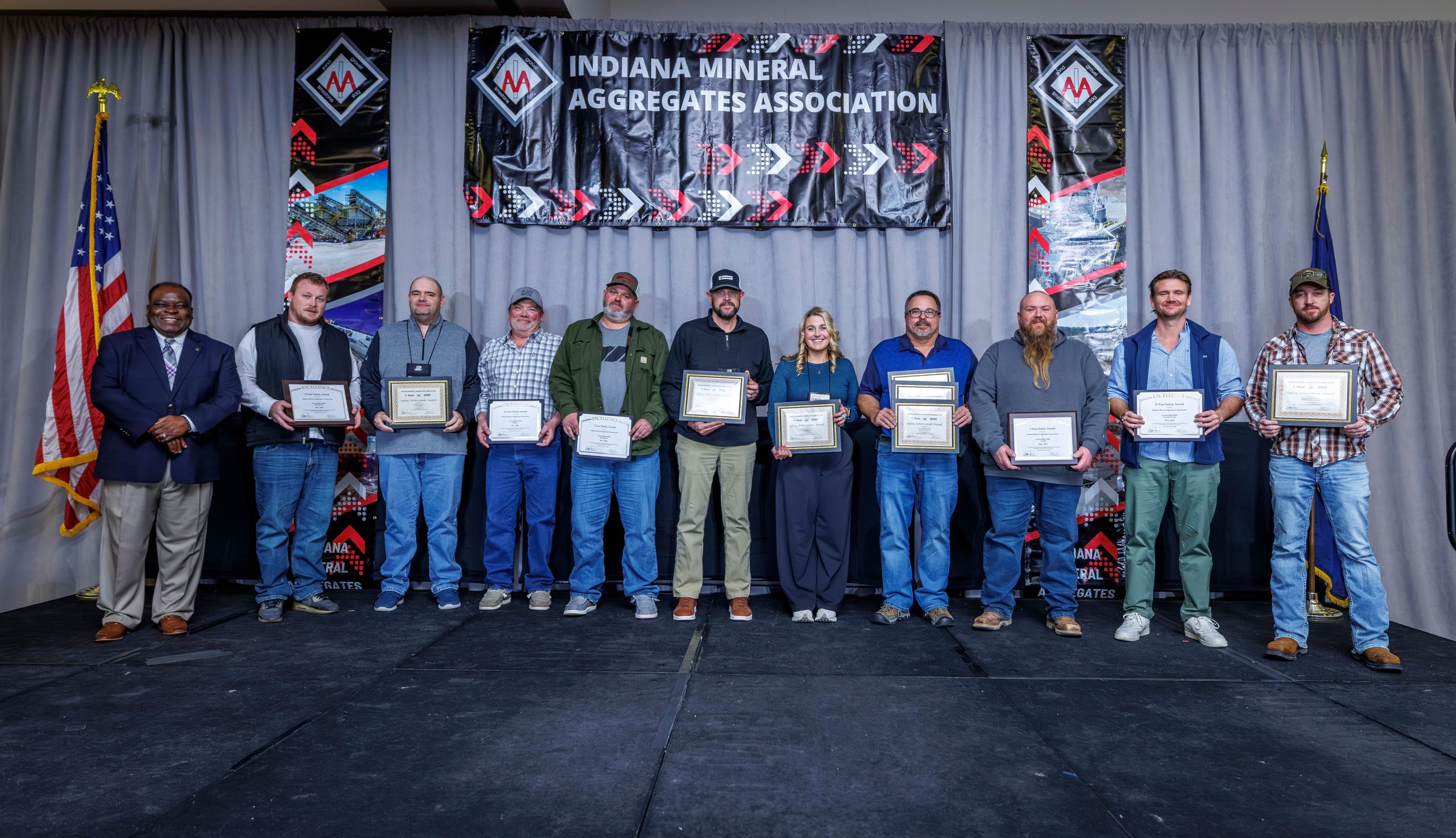
Have you ever seen these types of signs in your community?


“Unfortunately, a majority of people are unaware of the extensive environmental regulations placed on the mining industry,” says US Aggregates Environmental Manager Laurie Webb. “We try to educate the community, train our employees and run our operations in a manner that is consistently above and beyond what is mandated by our environmental permits.”
To achieve this level of compliance, all US Aggregates sites are required to meet environmental standards regulated by a variety of governmental offices including Indiana Department of Environmental Management (IDEM), the US Environmental Protection Agency (EPA), the Department of Natural Resources (DNR) and US Army Corps of Engineers (USACE). It’s common for each site to receive an annual inspection focused on the following environmental categories:
- Air: The Clean Air Act (CAA) of 1970 was created by the EPA to improve the poor air quality associated with mining operations. Dust control is required throughout our entire site, including haul roads, stockyards, plant equipment and site entrances. US Aggregates utilizes water trucks, street sweepers and spray nozzles on the fixed equipment to control dust
- Water: In 1977 the EPA created the Clean Water Act (CWA) to regulate discharges of pollutants into the surface waters of the US. All US Agg sites closely monitor the intake and discharge of water at our sites. We measure the quantity and quality of all water pumped off-site as well as the amount of ground water pulled from the aquifers surrounding our quarries. Regulations are in place to protect the water levels of neighboring wells.
- Fuel: Fuel storage reporting requirements are regulated by the Emergency Planning and Community Right-to-Know Act (EPCRA) of 1986. Each year, all US Agg sites report the amount of oil and fuel stored on-site to the US Dept of Homeland Security in addition to performing monthly inspections of fuel tanks and spill containments. These inspections ensure that we are not discharging oil-contaminated water off the property and into Waters of the US.
- Reclamation Plans: Many of our sites accept clean fill to be used for reclamation purposes. Clean fill consists of construction waste materials like concrete, fully cured asphalt, bricks and clay, that can be reused, repurposed or recycled to backfill the pit or build perimeter berms around the edge of the property. All clean fill material is tested with photo-ionization detectors to ensure the material is not contaminated with fuel oil . The reclamation plans are monitored by the Environmental Steward Council sponsored by the Indiana Mineral Aggregates Association.
- Sustainability: Almost all sites have used conveyor belts, scrap metal and old tires laying in their boneyards. When possible, we utilize our vendors to recycle most of these materials, repurposing them in horse stables, city maintenance shops, race track guarding and bison fencing, to name a few. Other sustainability projects include carbon emission reduction achieved by pump electrification and evaluation of heavy equipment travel patterns throughout the plant. Staying informed on new environmental policies and regulations is core to our company’s success.
Throughout the year, all US Aggregates employees attend Annual Refresher Training and weekly Plant Inspections, where we continue to educate and reiterate the safety and environmental standards we expect at our sites. Protecting our employees and protecting our environment becomes part of the daily conversations at all our sites to ensure we are following the best practices we’ve developed.
Safe operations cannot take place without navigating the complexities of environmental permitting. Adhering to proper environmental permitting is integral to generating trust with communities, promoting long-term operational success and protecting our natural resources for future generations to come.




